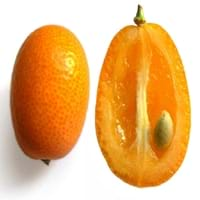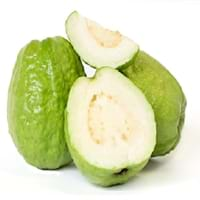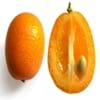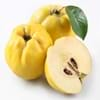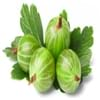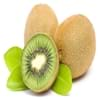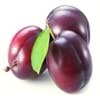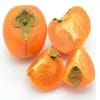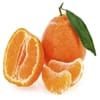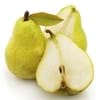Health Benefits
Cancer prevention, Cures gastro-intestinal troubles, Heart care, Increase in haemoglobin, Increases metabolic rate
Cancer prevention, Diarrhea treatment, Prevents constipation, Scurvy treatment, Treatment of dysentary
General Benefits
Anti oxidant properties, Anti-inflammatory properties, Healing of wounds, Helps in weight loss, Strengthens bones
Controls blood pressure, Cures cough, Improves eye vision, Maintains healthy cholesterol level, Treatment of common cold
Skin Benefits
Anti-aging benefits, Reduces wrinkles, Treatment of dark spots
Anti-aging benefits, Brightens and lightens complexion, Hydrates skin, Treatment of skin diseases
Hair Benefits
Promotes longer and healthier hair, Protects hair, Shiny hair
Prevents hair loss
Allergy Symptoms
Abdominal pains, Coughing, Diarrhea, Digestive Problems, Drop in blood pressure, Hives, Itching, Nausea, Tingling sensation in wrist and face, Vomiting, Wheezing
Breathing difficulty, Coughing, Runny nose, Sneezing, Swelling of mouth, tongue or lips, Wheezing
Side Effects
Allergic reaction
Hair thinning, Nail thinning, Skin problems, Tooth decay, Weakness, Possibly unsafe during pregnancy
Best Time to Eat
As a snack in the late afternoon, Don't consume at night and before bed, Eat the fresh ones, avoid mixing with any other foods, don't eat after meal., Morning time (before lunch), Strictly avoid empty stomach
As a snack in the late afternoon, Don't consume at night and before bed, Eat the fresh ones, avoid mixing with any other foods, don't eat after meal., Morning time (before lunch)
Vitamin B5 (Pantothenic Acid)
Vitamin C (Ascorbic Acid)
Vitamin K (Phyllochinone)
Calories in Fresh Fruit with Peel
Calories in Fresh Fruit without Peel
Not Available
Not Available
Calories in Frozen Form
Not Available
Not Available
Calories in Dried Form
Not Available
Calories in Canned Form
Not Available
Type
Citrus
Tree fruit, Tropical
Season
Autumn, Winter
All seasons
Varieties
Hong Kong, Marumi, Meiwa, Centenniel and Nagami
Lucknow 49, Allahabad Safeda, Chittidar, Harijha, Apple guava, Hafshi, Arka Mridula and Allahabad Surkha
Color
Orange, Red, Yellow
Green, Pink, Yellow
Inside Color
Orange
White
Taste
Sweet, Tart
Sweet-Sour
Origin
China
Central America, Mexico, South America
Soil Type
Clay, Sandy loam, Well-drained
Loam, Rocky, Sandy
Climatic Conditions
Cold, Warm
Sunny
Facts about
- The entire kumquat fruit is edible, except few seeds.
- The taste of kumquat skin is sweet while inner flesh is tart.
- There are some hybrid varieties of kumquats such as mandarinquats, orangequats and limequats.
- The black pigment in Guava leaves is used for textile applications.
- Guava leaves are used to make tea.
- Oils extracted from guava seeds are used in various cosmetics.
- Guava wood is used for decorative purposes.
Other Countries
Brazil, Mexico, Spain, United States of America
China, Indonesia, Mexico, Nigeria, Pakistan, Philippines, Thailand
Top Importer
United Kingdom
Canada
Botanical Name
Citrus japonica
Psidium guajava
Synonym
Fortunella margarita
Not Available
Subkingdom
Tracheobionta
Tracheobionta
Division
Magnoliophyta
Magnoliophyta
Class
Magnoliopsida
Magnoliopsida
Order
Sapindales
Myrtales
Family
Rutaceae
Myrtaceae
Species
C. japonica
Psidium guajava
Generic Group
Citrus fruit
Myrtle
Difference Between Kumquat and Guava
We might think that Kumquat and Guava are similar with respect to nutritional value and health benefits. But the nutrient content of both fruits is different. Kumquat and Guava Facts such as their taste, shape, color, and size are also distinct. The difference between Kumquat and Guava is explained here.
The amount of calories in 100 gm of fresh Kumquat and Guava with peel is 71.00 kcal and 68.00 kcal and the amount of calories without peel is Not Available and Not Available respectively. Thus, Kumquat and Guava belong to Low Calorie Fruits and Low Calorie Fruits category.These fruits might or might not differ with respect to their scientific classification. The order of Kumquat and Guava is Sapindales and Myrtales respectively. Kumquat belongs to Rutaceae family and Guava belongs to Myrtaceae family. Kumquat belongs to Citrus genus of C. japonica species and Guava belongs to Psidium genus of Psidium guajava species. Beings plants, both fruits belong to Plantae Kingdom.
